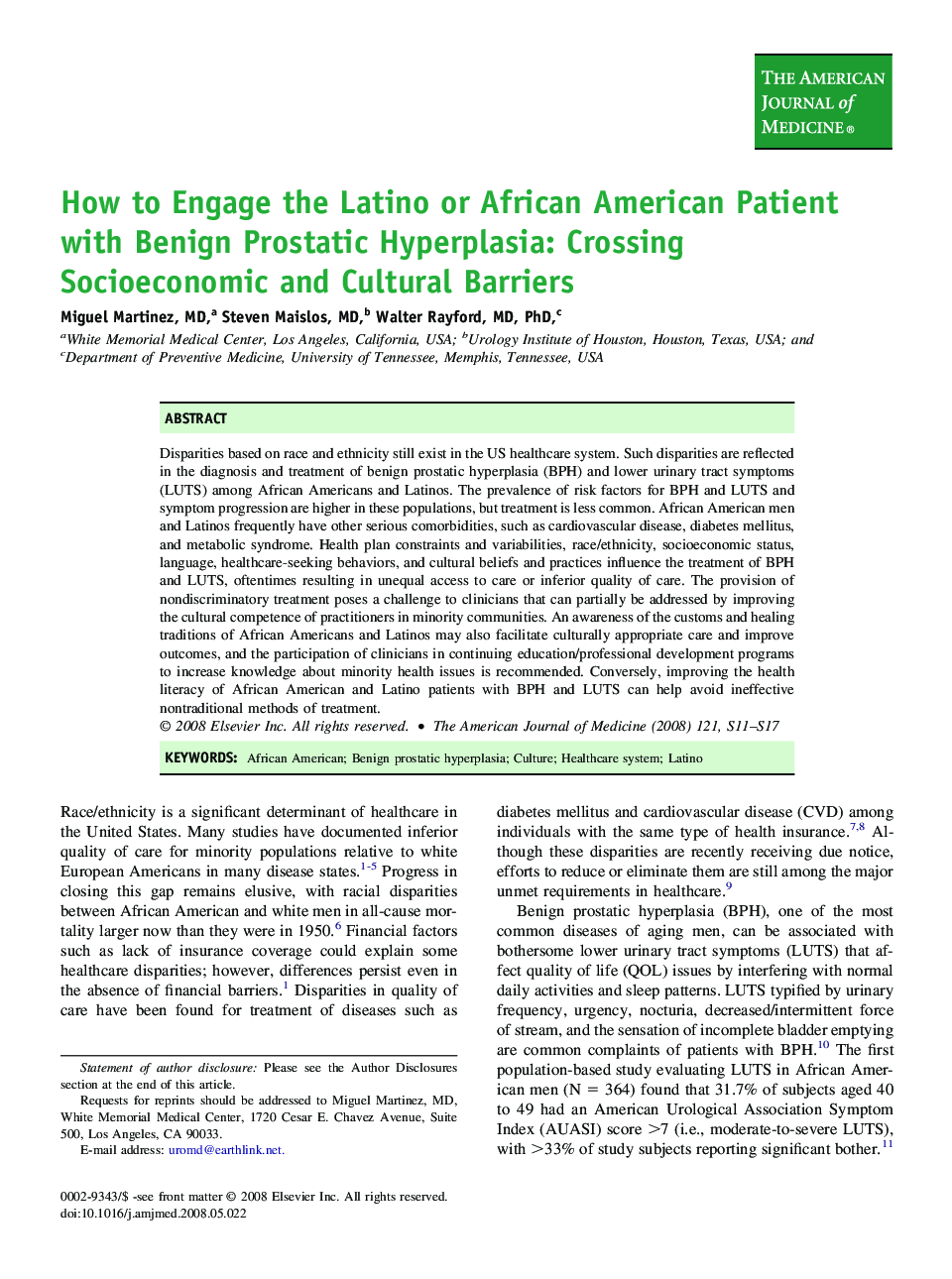| Article ID | Journal | Published Year | Pages | File Type |
|---|---|---|---|---|
| 2720827 | The American Journal of Medicine | 2008 | 7 Pages |
Disparities based on race and ethnicity still exist in the US healthcare system. Such disparities are reflected in the diagnosis and treatment of benign prostatic hyperplasia (BPH) and lower urinary tract symptoms (LUTS) among African Americans and Latinos. The prevalence of risk factors for BPH and LUTS and symptom progression are higher in these populations, but treatment is less common. African American men and Latinos frequently have other serious comorbidities, such as cardiovascular disease, diabetes mellitus, and metabolic syndrome. Health plan constraints and variabilities, race/ethnicity, socioeconomic status, language, healthcare-seeking behaviors, and cultural beliefs and practices influence the treatment of BPH and LUTS, oftentimes resulting in unequal access to care or inferior quality of care. The provision of nondiscriminatory treatment poses a challenge to clinicians that can partially be addressed by improving the cultural competence of practitioners in minority communities. An awareness of the customs and healing traditions of African Americans and Latinos may also facilitate culturally appropriate care and improve outcomes, and the participation of clinicians in continuing education/professional development programs to increase knowledge about minority health issues is recommended. Conversely, improving the health literacy of African American and Latino patients with BPH and LUTS can help avoid ineffective nontraditional methods of treatment.
